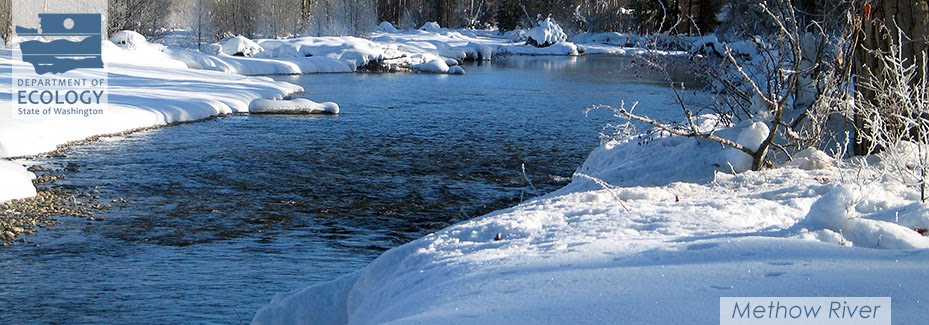Washington has one of the lowest oil spill rates of any state in the nation because we are constantly assessing spill risks and taking measures to prevent oil spills from occurring in the first place.
 |
| A train of oil tank cars passes by a Seattle beach |
As more petroleum products, including crude oil, are extracted from the center of North America where there are no refineries, it has to be moved to the nation’s coastal areas where it can be processed. However, pipelines alone can’t keep up with the demand to move all the oil currently being extracted from places such as North Dakota, Montana, and Alberta. As a result, we have experienced a steady increase in the amount of crude oil transported through our state by rail. Currently, nearly 12 percent of all the oil being transported through Washington is moved by rail. Railroad lines stretch across thousands of miles in Washington, crossing many of the state’s rivers, streams, and underground aquifers. Tracks stretch along many of the state’s most pristine rivers and marine shorelines. So as the amount of oil transported by rail has increased, so too has the risk for a spill that could threaten the environment, human health, and local economies.
That’s why the Washington Legislature passed the Oil Transportation Safety Act in 2015. The measure requires railroads transporting oil to have spill contingency plans to ensure they can mount an aggressive, well-coordinated response if they do have a spill. The change means railroads must match the same preparedness requirements now in place for vessels, pipelines, refineries, and transfer facilities operating in Washington.
 |
| Railroad tracks near Bellingham |
- Enhance readiness requirements for non-floating oils – There are many types of oils moved by rail, all with different characteristics. Washington wants to address response measures for oils that may weather and sink when spilled. This type of oil is a challenge to traditional cleanup methods that are designed to respond to floating oils.
- Establish new requirements for spill and wildlife response teams – Spill Management Teams respond to oil spills. Wildlife service providers provide wildlife rehabilitation and recovery services during a spill.
- Require railroad operators to conduct new oil spill preparedness drills – Drills help companies as well as local and tribal governments, and state, and federal agencies know what to do when an oil spill occurs. Under the proposal, companies will be required to conduct drills, depending on the size of their operation and type of oil they transport.
- Streamline plans for small rail lines – Some short-line railroads haul oils, such as vegetable oil, as cargo. Even though these small railroad companies do not carry crude oil and serve small communities, all oil is an environmental toxin and these companies need to be covered by oil spill contingency plans that are effective and in line with the size and scope of their operations.
 |
| Train cars parked in Spokane |
Fortunately, Washington has not experienced any large-scale accidents or related spills from railroad operations. But, we do observe and learn from incidents across North America so that they don’t occur here. Even though Washington has seen an increase in rail traffic carrying oil products which increases the chance of accidents, updating our state’s spill preparedness and response requirements will protect people, wildlife and the environment.
Ecology invites the public to weigh in on these changes through July 26, 2019. For more information, including how to comment, please visit our rulemaking page.

No comments:
Post a Comment